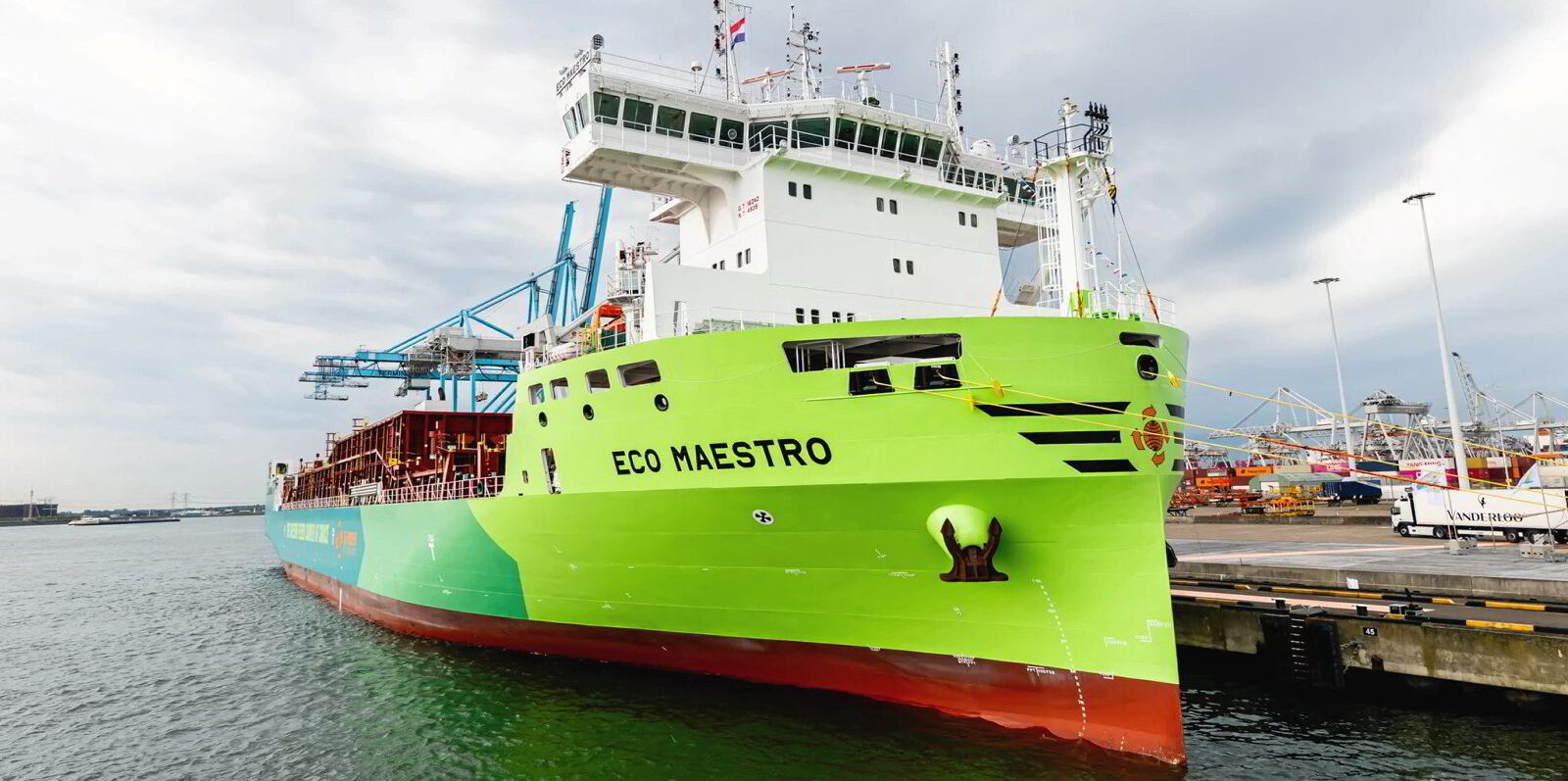Shipping’s fuel price sensitivity adds to the availability concerns weighing on the uptake of methanol-fuelled newbuildings as orders decelerate.
TradeWinds has reported that Clarksons data showed alternative-fuel ship orders have swung back to favour LNG over methanol this year after methanol dominated in 2023.
The shipbroking giant’s research division cited the greater availability of LNG in ports as being behind the shift.
The easing of natural gas prices has also made LNG more attractive.
“Developments in gas prices have helped support decisions on LNG dual fuel, and the bunkering network is also more advanced for the moment,” Clarksons Research managing director Stephen Gordon told TradeWinds.
Methanol reduces a ship’s greenhouse gas footprint, particularly when the green variety is used, which involves captured carbon and renewable energy or biological waste.
But even AP Moller-Maersk, which pioneered methanol fuelling, has been negotiating to book LNG-fuelled vessels, as TradeWinds has reported.
Alastair Maxwell, chief financial officer at green methanol producer C2X, said in a fireside chat hosted by US investment bank Evercore that shipping is the firm’s most accessible market for its green methanol.
“It’s also one of the most price-sensitive markets, and that’s one of the reasons why we’re so focused on only investing in commercially viable projects,” he said.
Maersk is C2X’s biggest customer and a shareholder alongside majority owner AP Moller Holding, which controls the Danish container ship operator.
Asked by Evercore green technology analyst James West about the challenges of scaling up green methanol supply, Maxwell said his company would not invest in a project that could not be lifted to a production capacity of at least 1m tonnes per annum.
He said feedstock — biological waste — was the primary constraint for C2X’s green methanol.
“Whether that is woody biomass, agricultural waste, corn stovers [or] municipal waste, that tends to be the primary constraint on scalability,” he said.
“But you also need access to renewable power. You need access to a grid with sufficient connection capacity.”
The cost and time to build electrolysers, which use electricity to turn water into hydrogen that in turn is used to produce synthetic methanol, is another constraint on increasing supply.
“Today, you need access to water if you’re producing green hydrogen from electrolysis, and you need access to land,” he said.
For some green methanol projects, another constraint is demand, although Maxwell said his company doesn’t have that problem.
He said grey methanol — the conventional kind made out of natural gas — can cost $400 to $600 per tonne.
C2X tries to keep its greener methanol below $1,000 per tonne, he said, because any price above that makes it hard to find long-term demand, especially in price-sensitive shipping.
Environmental groups have been applauding the adoption of green methanol in shipping because of its low-carbon credentials, and they have been critical of LNG because of the methane emissions in the upstream supply chain and on board ships.
But as TradeWinds reported, the Methane Abatement in Maritime Innovation Initiative, which includes companies involved in LNG-fuelled shipping, has cited progress in reducing methane slip on vessels.
The group found more options to reduce methane slip than was expected, although it said regulations and measurement standards are needed to encourage adoption.
As those companies work to make LNG a greener alternative, shipping is still looking at methanol as an important part of the decarbonisation puzzle.

The Maersk Mc-Kinney Moller Center for Zero Carbon Shipping is working with cruise lines and ports to study the feasibility of using passenger ships powered by methanol on a green corridor along the west coast of the US and Canada.
Bob Alton, senior director of technical programmes and decarbonisation at Carnival Corp-owned Princess Cruises, told a webinar hosted by the centre and the Port of Seattle that he is hopeful the study will provide a better understanding of methanol infrastructure and the availability of green methanol at scale.
The cost structure is also crucial.
“No doubt that the availability of alternative, cost-competitive maritime fuels at scale is a key issue today,” Alton said.
“This is why the maritime sector is asking the US Department of Energy to support a sustainable maritime fuel challenge focused on production, development and use of low-emission alternative fuels.”





